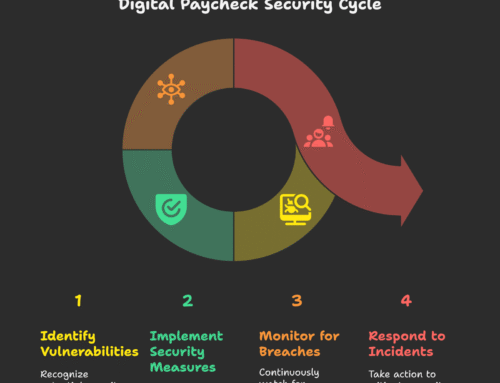Digital transformation has rapidly altered the work of company departments. The HR department is among those where this transformation has changed the execution of processes considerably compared to the past few years. The role of the HR department, in ten years ago was primarily that of managing employee:
- Payroll
- Tax
- Pension
Also, the Human Resources department was responsible for recruiting new workers and talent. At the same time it was responding to the other departments’ needs. The process involved arranging publication for newspaper and online ads.
In some industries, especially service provision and manufacturing, the Human Resources department also included monitoring the productivity of staff. Currently, digital HR tools have made Human Resources departments more efficient and productive. Recruitment of new staff and management of business welfare are some processes that have hugely benefited from HR tools.
Want to elevate the performance of your company and staff productivity? Ensure your employees are motivated. That means they’ll not look for employment opportunities somewhere else. Your company can reap significant benefits by carrying out standard Human Resources tasks using high-end digital tools that offer extra services on top of those of regular solutions.
Image by creativeart on Freepik
Most Essential HR Tools Every Business Needs to Have
Completing human resources tasks is challenging without the right tools. Apart from completing them on time and accurately, you also need to ensure they comply with all industry regulations. That is why a huge range of digital HR tools is available to help with ongoing employee management.
Human Resources solutions leverage innovation to incorporate automation into your processes. The objective is to minimise busywork and allow your Human Resources staff members to save effort and time for more important tasks. You can minimise your spending and obtain better outcomes with practical HR tools. Let’s look at some statistics that prove HR tools are helpful:
- According to the SHRM research that explores the use of automation and AI in HR, nearly 1 in 4 organizations report using artificial intelligence (AI) or automation to support Human Resources-related activities, including hiring and recruitment. Large employers lead when it comes to using HR tools for hiring. 42% of employers with 5,000+ workers use these tools when hiring or recruiting.
- According to The Chartered Institute of Personnel and Development (CIPD) research, 84.5% of organizations have HRIS and payroll software. 70% of these organizations have more than 550 workers.
With this increasing number of organizations using HR tools, which ones are the most essential that each business needs to have? Let’s find out.
HRMS
Human Resources have a lot of data to gather, store and keep track of. Many companies are using the latest Human Resources Management Systems to complete these tasks. Whether it’s an in-house solution or software as a service, a Human Resources Management System can be an HR department’s best acquaintance. It can help HR managers to collect, store, and organise data, including employee:
- Profiles
- Attendance lists
- Schedules
These systems are, in most cases, data-driven solutions that enable users to create comprehensive reports for auditing purposes. Most of these systems work as central platforms for HR departments and often include integrations or modules that provide you with much-needed access to:
- Benefits management
- Payroll services
- Performance appraisals
Recruitment Management
Most companies have discovered that using Human Resources tools that manage recruitment is effective. It’s an area where innovation is evident compared to traditional techniques. A recruiting system simplifies the procedure of finding, picking and hiring applicants.
It allows HR departments to publish job vacancies, receive and categorise applications and more. Through these functions, the recruitment management system eliminates the hassle of managing all these recruitment processes manually.
Employee Portal System
The Human Resources team needs to receive hundreds of emails from workers requesting annual leave, submitting receipts, or requesting the number of holidays they have left, and more. It takes a significant amount of time to review and manage all these communications.
For this reason, most businesses turn to employee portal systems. An employee portal system can be an application or a private access platform where employees can manage basic administrative tasks.
An employee portal system provides staff members with a sense of self-sufficiency. In terms of Human Resources, this system has a huge impact on the HR department workload. There is no more spending significant amounts of time opening and responding to endless emails.
Employees can solve most of their questions and concerns on their own, and everything else can be managed on a single platform. Additionally, these days, employees are used to using smart devices or the internet for almost everything. Having an employee portal system that allows workers to communicate with your HR department significantly boosts their overall experience.
Attendance System
The key to measuring business efficiency and performance is tracking employee attendance. In most countries, this is a legal requirement. Some organisations are still using Excel spreadsheets. Workers complete these spreadsheets daily, weekly, or monthly.
Pen and paper, together with Excel spreadsheets, aren’t the perfect way to track employee attendance. However, they aren’t the best options. A time tracking system makes it easier for workers to record and track their working hours, even on their handheld devices. Also, they can do that from anywhere, making it perfect for teleworking or client meetings.
Also, the software includes vital reports that highlight the working hours of each worker. They allow managers to identify variances and determine areas that need improvement, like adding an expert. All the processed data is saved securely and automatically in the cloud. Companies can use the data in case disputes arise.
The HR department can be at the centre of a business’s digital transformation. The rewards of using HR tools are obvious. Numerous tasks can be automated and completed quickly, thanks to HR tools, including:
- Recruitment
- Payroll and bonus management
- Performance monitoring
- Staff training
All these systems have one goal: to create a happy working environment for employees. What this means is excellent employee retention. If you incorporate the right HR tools in your Human Resources department, you’re sure to cultivate a good company culture.







Leave A Comment